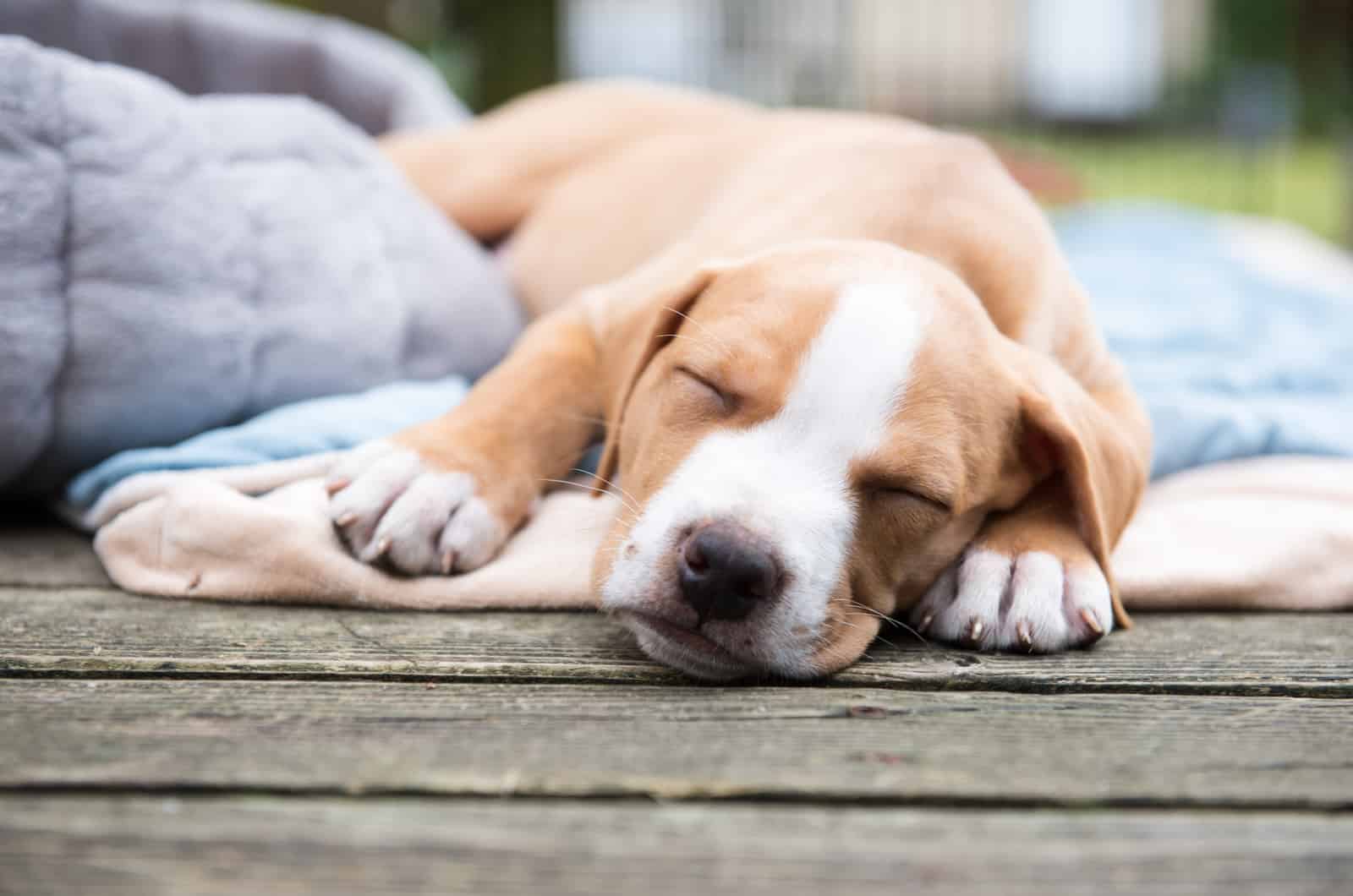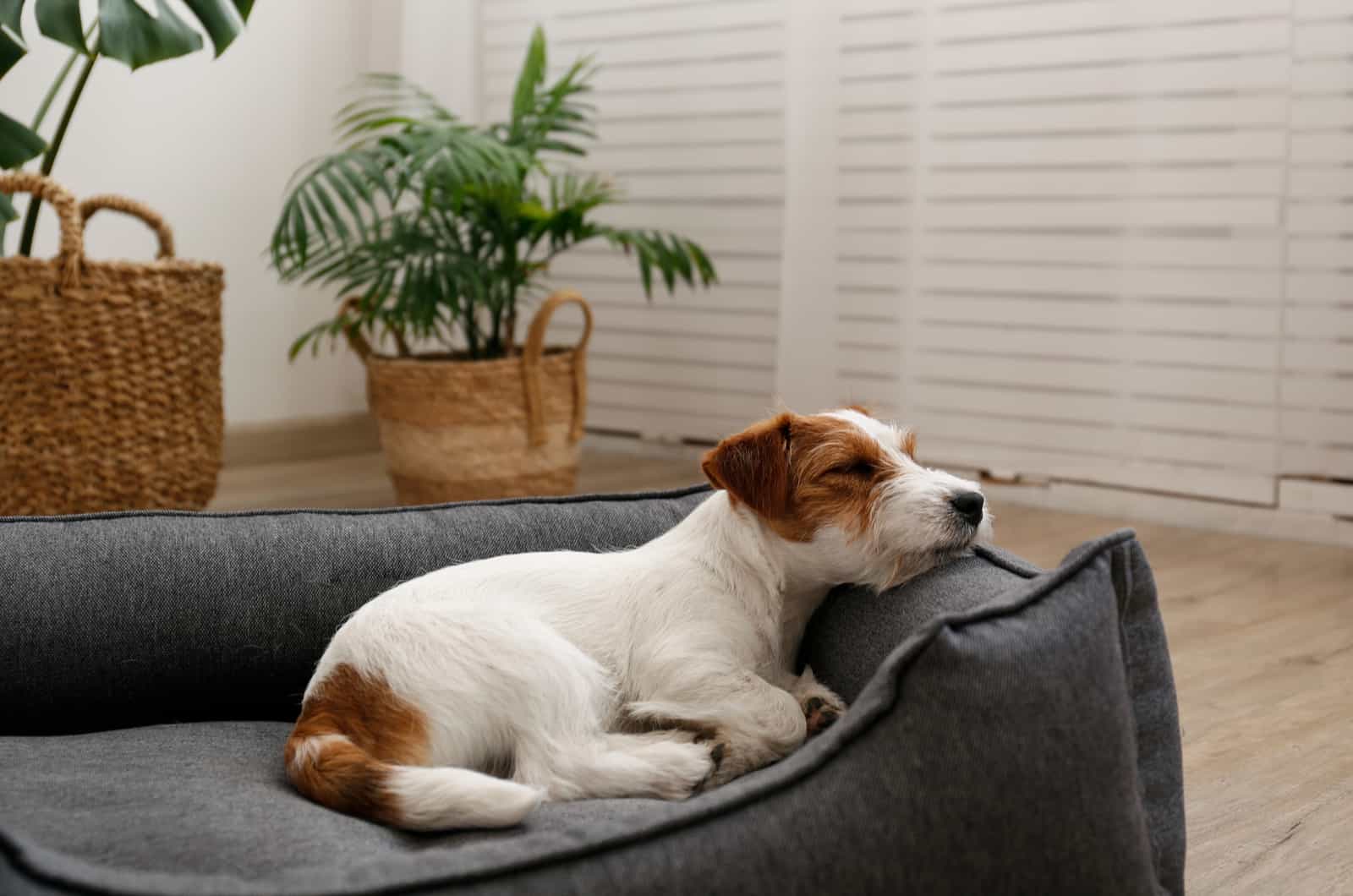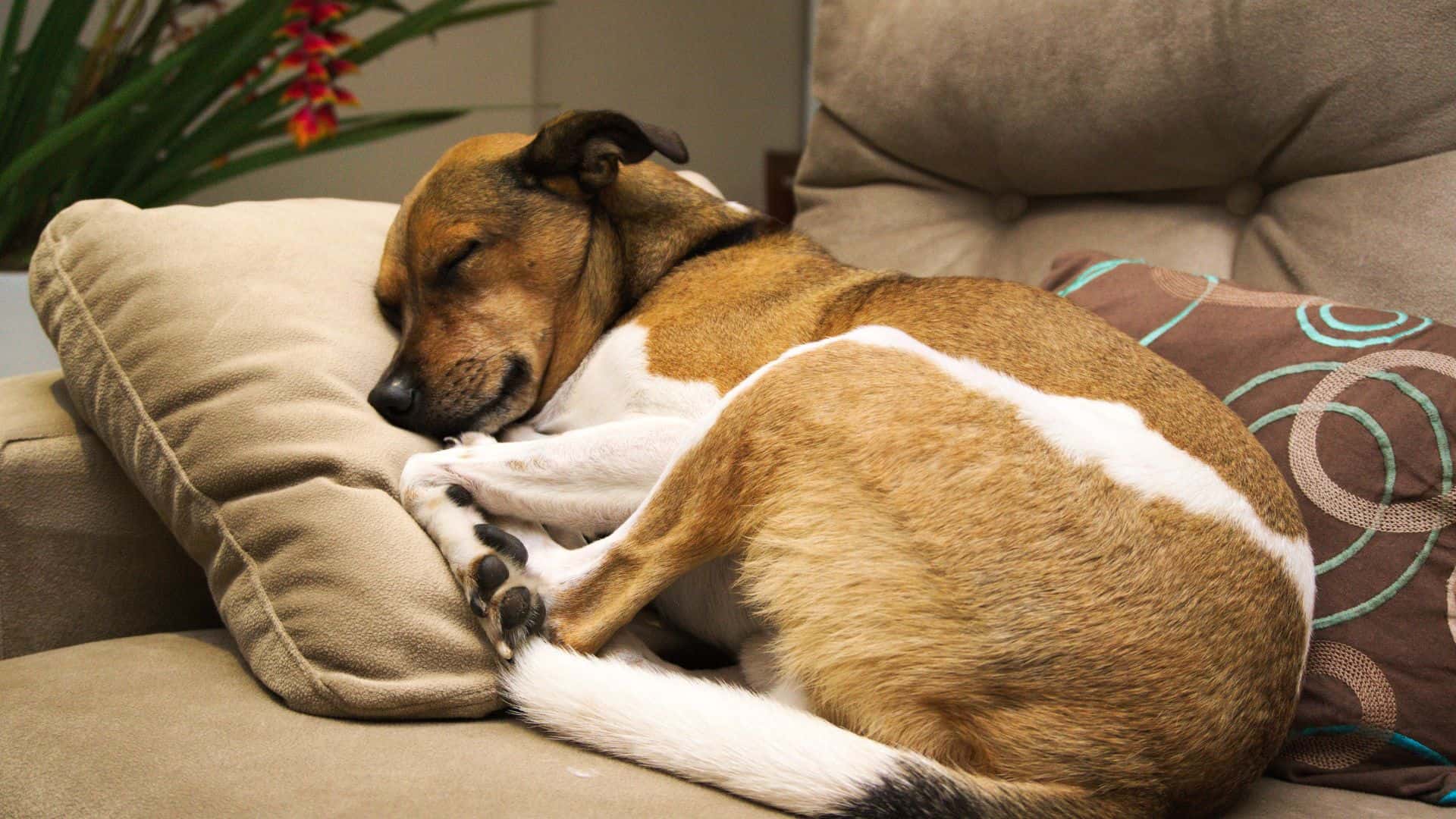Dogs love to nap. It’s one of their favorite things to do. On average, they spend around half of their day sleeping. This begs the question: Just how much sleep do they actually require every day?
The answer is not that simple as there are some factors that first have to be taken into account when dealing with this topic and that is what we will be talking about in this article.
How Much Do They Sleep On Average

As already mentioned, dogs tend to sleep a lot more than humans do. It can range from 11 hours to 14 hours depending on the age and breed of the dog.[1]
Even though the evidence is shallow, some estimates say that small puppies sleep at least 11 hours and most of that is during the day.
Older dogs tend to sleep between 8 and 14 hours, but unlike puppies, most of their sleep time is during the night. This, however, doesn’t mean that their daytime naps are less important.[1]
Senior dogs can sleep up to 18 hours as they sleep a lot during the night and also during the day.[1]
Now, how does the breed affect sleeping patterns? The answer here is simple: smaller dogs sleep less than the bigger dogs on average.
For example, breeds that typically sleep the most on average are: Mastiff, Saint Bernard, Great Pyrenees, and Bernese Mountain Dog.
Breeds that sleep the least are: Pomeranian, Chihuahua, Border Collie, and Yorkshire Terrier.
Even though all of these are average numerical values on how much dogs sleep, they may not apply to your dog.
As you can see, on average, every dog needs at least 12 to 14 hours of sleep per day, and it’s important to keep that in mind and always be mindful of your dog’s sleeping habits in case he may be suffering from a sleep disorder.
Do Dogs Really Have Sleeping Disorders

The simple answer is yes. Dogs, like humans, can also have sleeping disorders sometimes. Some of the most common disorders in dogs are: insomnia, narcolepsy, sleep apnea, and REM behavior disorder.
Insomnia is incredibly common for dogs. The usual symptoms are lack of sleep caused by some form of anxiety or maybe an illness.
Narcolepsy is rarer than insomnia, but it is more problematic. The condition affects a dog’s REM sleep, and as a result, causes sleepiness during the day.
This can also result in muscle weakness or even paralysis in a more extreme case, and it is better to treat it right away.
Sleep apnea happens usually in breeds like bulldogs, or it can happen to dogs that are overweight or obese. The cause is usually brought on by snoring, which makes it more difficult to breathe.
REM Behavior Disorder happens when a dog is more active during REM sleep. This can be problematic, and it might cause mood swings in your dog, so it’s best to address this problem as soon as you can.
As you can see, there are quite a few sleep disorders that you have to look out for in your dogs. If you ever notice your dog has trouble sleeping, take him to a veterinarian as soon as possible. Ignoring these problems can cause a lot of trouble in the future.
How To Improve Your Dog’s Sleep Quality

There are so many things you can do to help improve your dog’s sleep quality and all of them are pretty easy things to implement into his daily life.
Firstly, you might want to make sure that you and your dog are sleeping separately. Even though our canine friends love to curl up next to us and sleep, it may not always be a good thing.
Sometimes, when we sleep, we tend to move a lot, and we can accidentally bump into or hit our dog, and this can disrupt sleep for both.
This leads into the next key point, and that is to make a comfortable bed for your dog. If he doesn’t have one, buy an orthopedic one as they are very comfortable and can drastically improve a dog’s sleep quality.
If your dog has a disruptive sleep pattern, then perhaps it would be a good idea to create a schedule. A repetitive routine would create more consistency and could improve his sleep.
Create a dark and quiet environment. This is the most important thing. Because of the circadian rhythm in dogs, they sleep much better in a dark environment.
They are also much more sensitive to sounds, which means that isolating any unnecessary sound will improve their sleep a lot.
To Conclude
Whenever you feel that your dog might be tired, or is lacking sleep, make sure to try these suggestions.
If nothing has improved, then take your dog to a veterinarian because it’s possible he is dealing with a sleeping disorder.
Just make sure to always be attentive of your dog’s needs and act accordingly.
References:
[1] Kinsman R, Owczarczak-Garstecka S, Casey R, Knowles T, Tasker S, Woodward J, Costa R, Murray, J. (2020). Sleep Duration and Behaviours: A Descriptive Analysis of a Cohort of Dogs up to 12 Months of Age. Free Scientific Article, PubMed.
